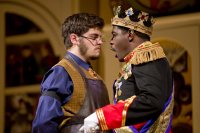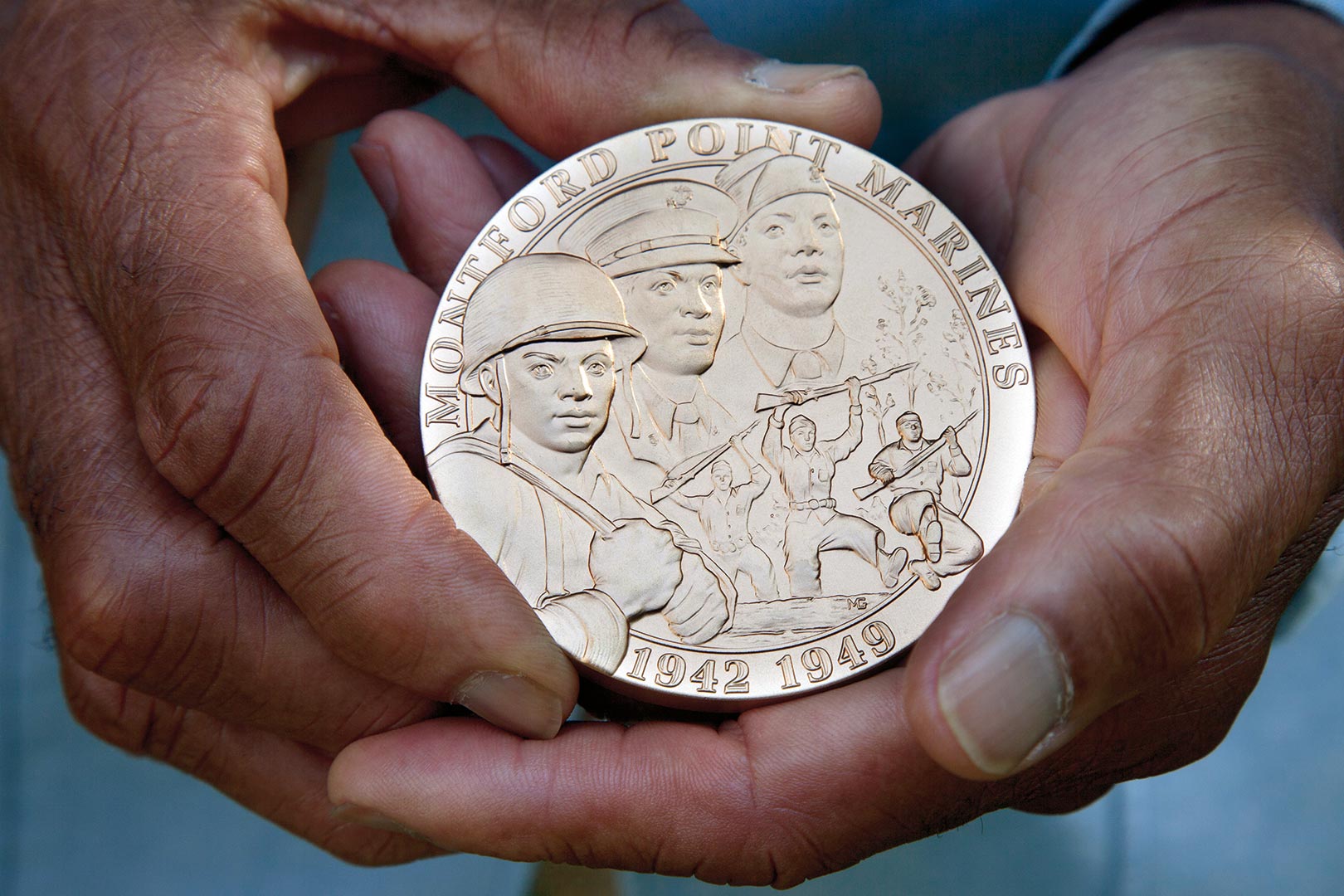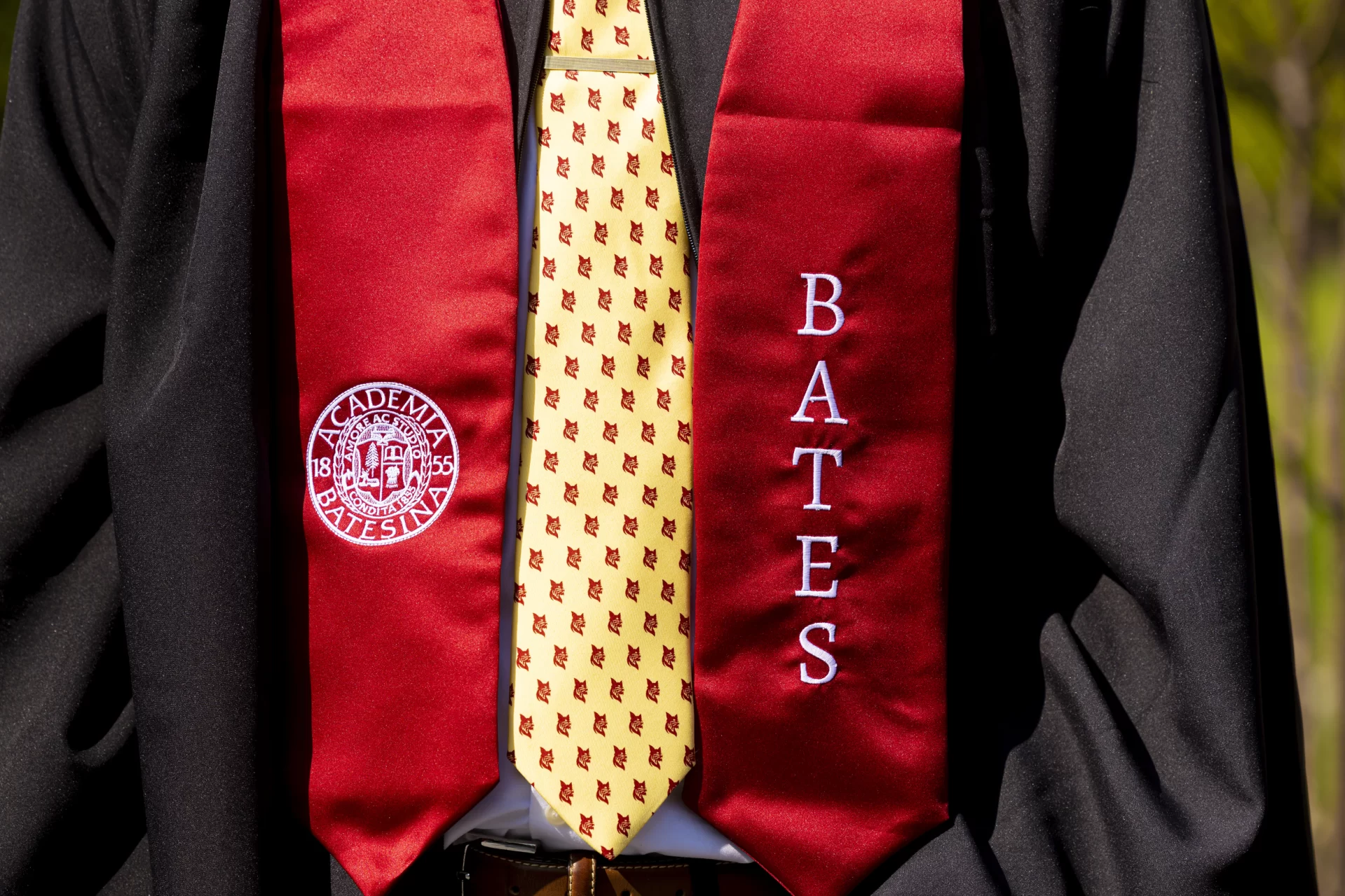
Marcus ’82 offers first-hand accounts of Boston Marathon bombings and aftermath for Esquire
Blogging for Esquire about the bombings at the Boston Marathon, writer Jon Marcus ’82 offers two first-hand accounts: one of the chaotic scene at the finish line, the second about a “seemingly simple but symbolically poignant” grassroots group run through neighboring East Cambridge.
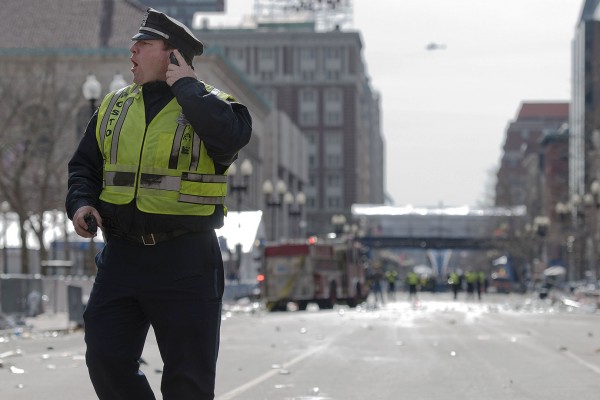
A Boston police officer shouts instructions on Boylston Street in Boston on April 15, 2013. Photograph by Bates photographer Mike Bradley, who was at the marathon earlier in the day and returned to cover the aftermath for a New York City media outlet.
Marcus was reporting on the race when the bombs transformed Boylston Street just before 3 p.m. on April 15.
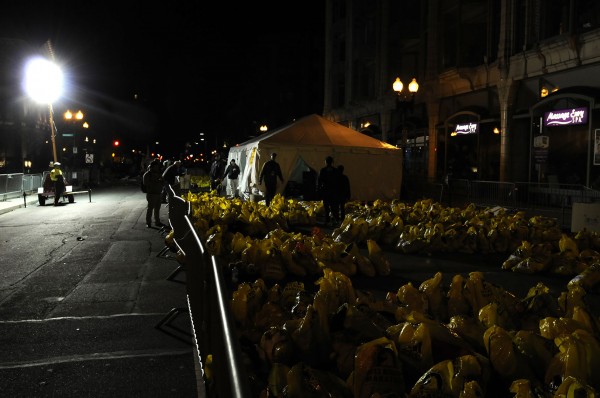
After the bombing, runners weren’t able to collect belongings that had been transported back to Boston from the race start in Hopkinton. By evening on April 15, thousands of yellow plastic bags with runners’ gear had been collected near the finish line, including this pile on Berkeley Street. Photograph by Mike Bradley/Bates College.
A veteran of the Boston Marathon himself, Marcus also reports on the group of nearly 300 runners who gathered in East Cambridge for a group run the next day. He writes:
“In a city still shell-shocked by the Boston Marathon bombings, and with just a few hours’ notice on social media and by word of mouth, some 270 runners answered the call put out by a local running club whose weekly get-togethers at the Courtside, a beloved dive bar, usually attract 30.”
“Boston won’t stop running.”
The group’s route that evening covered both sides of the Charles River and raised $3,000 for victim relief.
One of the organizers, P.J. Aspesi, tells Marcus that “we tried to figure out how we could come together afterward and help, and show everybody that Boston won’t stop running.”
